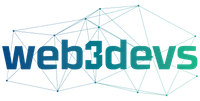This week’s featured collector is NFcubedT
NFcubedT’s is an “Artist. Daydreamer. Schemer of Silliness.” Their collection of whimsical hand-drawn NFTs grabbed our attention. Take a look at lazy.com/NFcubedT
How has your own approach to collecting or trading NFTs changed recently?
Last week’s poll explores how Lazy.com users’ behaviors regarding collecting or trading NFTs have shifted recently. The results reveal a significant cooling off in activity within the NFT space. The majority of respondents, 63%, indicated they are currently “on hold,” suggesting they have paused their involvement in NFTs for the time being. Another 13% said they “sold off most of [their] NFTs,” indicating a strategic exit or liquidation of their digital assets.
Interestingly, only 25% reported that they are “still very active,” showing that a small but committed portion of the community continues to engage enthusiastically with NFTs. Notably, no respondents selected “I’ve become more selective,” which could imply that those still involved are maintaining prior levels of activity rather than refining their strategies. Likewise, no one selected “I was never involved in NFTs,” suggesting that all respondents have at least some past experience in the space.
Overall, the poll reflects a cautious sentiment dominating the NFT market among the respondents, with the bulk either stepping back or fully divesting, and only a minority actively participating.
A Fresh Vision for NFT Regulation: A New Path Forward for Digital Collectibles and Creative Innovation
Andreessen Horowitz (a16z), a prominent venture capital firm deeply embedded in blockchain and web3 space, has proposed significant regulatory reforms to the U.S. Securities and Exchange Commission (SEC) regarding NFTs. This forward-looking initiative, submitted in March 2025 to the SEC’s Crypto Task Force, specifically addresses the current legal uncertainties faced by NFT creators, collectors, and trading platforms.
The current regulatory framework was not crafted with digital collectibles in mind. These digital assets—ranging from digital art and music to gaming assets and physical redeemables—serve primarily as proofs of ownership or unique rights rather than financial instruments. The absence of clearly defined regulatory parameters has, however, resulted in confusion and apprehension within the industry. Creators face significant uncertainty about launching new projects due to fear of potential enforcement actions, such as the notable SEC case against Impact Theory in 2023. These concerns often push NFT creators to either halt their projects entirely or seek safer regulatory environments offshore, stunting the growth of digital innovation within the United States.
To address this critical issue, a16z suggests a dual approach. First, they propose a safe harbor rule—a framework clearly defining when NFTs should be exempt from securities regulations. According to their recommended criteria, NFTs eligible for this exemption must represent a specific, unique, and verifiable asset, not grant any ongoing financial interests in the creator or third-party enterprises, and avoid marketing as investment vehicles promising financial returns.
The suggested safe harbor aims to harmonize with the foundational principles of the Howey test, a benchmark used to assess whether transactions qualify as investment contracts under securities laws. If NFTs demonstrate clear intrinsic utility or value from inception, and creators avoid promoting financial gain based on their own or third-party future efforts, such tokens should rightly fall outside securities regulation.
For projects that naturally lie beyond this safe harbor—especially those using NFTs explicitly to fund future creative ventures—Andreessen Horowitz advocates establishing a tailored crowdfunding regulatory pathway. Current crowdfunding regulations such as Regulation CF or Regulation A+ impose extensive financial disclosures ill-suited for artists and creatives whose projects pivot more around artistic vision than detailed financial projections. Thus, the proposed new crowdfunding model for NFTs would streamline compliance requirements, ensuring creators provide essential disclosures relating specifically to the rights and utilities attached to their tokens, without burdensome financial detail irrelevant to artistic endeavors.
This nuanced crowdfunding pathway would stipulate conditions clearly distinguishing creative patronage from securities-like transactions, including limited funding amounts, clearly defined creative scopes, and potentially a redemption period for investors. This model, akin to successful platforms like Kickstarter, enhances the patronage experience by granting collectors lasting digital ownership or rights.
In presenting their proposals, a16z underscores NFTs’ broader potential and inherent value to digital commerce and community building. NFTs empower creators by enabling direct monetization of their works without traditional intermediaries. Collectors benefit from transparent, verifiable digital ownership, scarce digital assets, and potentially valuable perks or experiences. Diverse applications across digital art, music, gaming, sports collectibles, and even physical asset tokens reflect the versatile, robust nature of NFTs as cultural and community-building instruments.
Moreover, a16z emphasizes the urgency of updating regulatory frameworks to match digital economy advancements. NFTs uniquely embody economic independence, deriving intrinsic value from the underlying assets rather than ongoing issuer activities—contrary to traditional securities. The risk is that overly stringent regulation, not reflective of the distinct nature of NFTs, may inadvertently encourage creators to detach from community engagement post-sale, ironically hindering artistic and commercial innovation.
The rise of artificial intelligence further emphasizes the need for updated regulatory approaches, as NFTs can safeguard creator ownership and compensation rights amid proliferating generative content technologies like DALL-E and Midjourney. Blockchain-enabled NFTs and smart contracts provide transparent and enforceable digital rights management solutions, preserving creators’ control and compensation mechanisms in an increasingly decentralized digital environment.
Looking forward, the proposed regulatory reforms offer a promising framework to clarify distinctions between collectible tokens and securities, potentially boosting innovation and consumer confidence within the NFT market. However, establishing such nuanced guidelines involves careful balancing—too stringent rules may stifle creative experimentation, while overly lenient regulations might leave consumers vulnerable. Thoughtfully implemented, clear and flexible regulation could empower creators and collectors alike, fostering sustainable growth and safer participation in the rapidly evolving NFT cultural landscape.
Read the full letter here.
Do you support a16z’s NFT reform proposals?
We ❤️ Feedback
We would love to hear from you as we continue to build out new features for Lazy! Love the site? Have an idea on how we can improve it? Drop us a line at info@lazy.com



